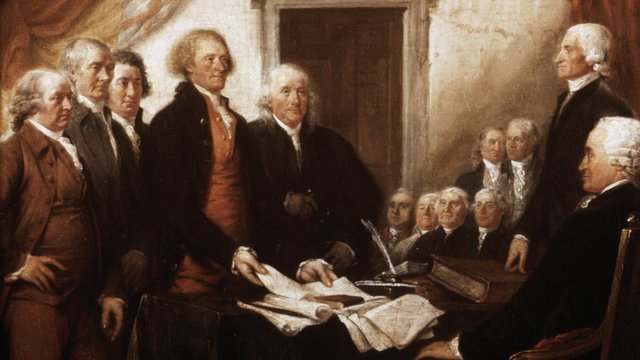
Modern day critics of Thomas Jefferson are quick to point to the inherent hypocrisy in championing the concept of liberty while owning slaves. Modern TJ apologists will focus on him marinating in the standards of his time, blind to the contradiction.
But that defense is ahistorical. He knew.
In the original version of the Declaration of Independence, TJ charged that the King had “waged cruel war against human nature itself, violating it's most sacred rights of life & liberty in the persons of a distant people who never offended him, captivating & carrying them into slavery in another hemisphere, or to incur miserable death in their transportation thither”.
The Crown was “determined to keep open a market where MEN should be bought & sold, he has prostituted his negative for suppressing every legislative attempt to prohibit or to restrain this execrable commerce”. He called slavery an “assemblage of horrors” and “crimes committed against the liberties of one people”.
Unfortunately, this section didn’t make the final version for practical and political reasons related to unity between colonies. In Jefferson’s words, “The clause... reprobating the enslaving the inhabitants of Africa, was struck out in compliance to South Carolina and Georgia, who had never attempted to restrain the importation of slaves, and who on the contrary still wished to continue it”
His original declaration was edited by men who believed they'd only win the war if the colonies weren't divided, and whether they were pro or anti the institution, put the decision off for another day.
In other words, Jefferson attempted to lay the groundwork for the abolition of slavery in a new government despite benefitting from the institution personally, at very least ending the transatlantic slave trade towards that end. He probably figured the government would compensate slaveowners when granting emancipation, purchasing slaves and then granting them freedom like other countries that abolished the practice had. He clearly recognized it's immorality, it's "horror", it's evil. He was simply too weak to apply his stated principles to his personal conduct.
I'm not exactly sure if that knowledge makes him more or less sympathetic. Like... on the one hand, he clearly favored abolition in some form as a matter public policy, and recognized before most men in his position that it was wrong. But on the other, actually knowing it was wrong and continuing to hold slaves, rather than being ignorant or parroting and internalizing the excuses of the day, is sorta worse because there's less of an excuse.
I dunno... I still appreciate the document and much of what the declaration represents, but was just thinking on this Fourth of July about what was left on the cutting room floor and how differently history might have been if it hadn't been cut. I mean, maybe slavery would have ended sooner, maybe America would have lost the war, but it's not a bad starting point for an alternate history novel.